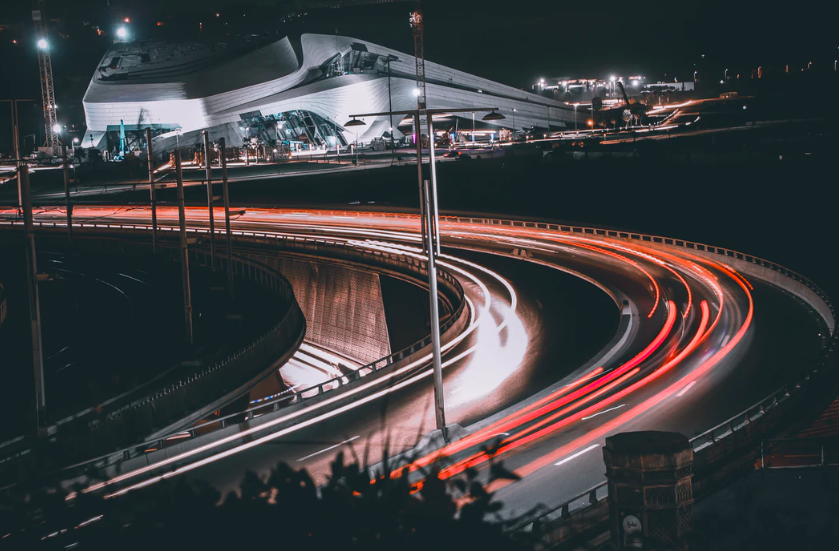Cities contributing to achieving Morocco's Transport NDC

Ambitious GHG emission reduction targets
Morocco emitted around 82 MtCO2e in 2014, which represents almost 0.2% of global greenhouse gas (GHG) emissions. Although a low emitter, Morocco is vulnerable to the effects of climate change. The Kingdom is therefore strongly involved in the fight against climate change and has committed to reduce its greenhouse gas emissions by 32% in 2030 compared to the “business as usual” scenario as part of its NDC (Nationally Determined Contributions). This ambitious commitment is conditional on the support of international financial support of around $ 45 billion.
This commitment translates into a 23% reduction in energy consumption in the transport sector. This sector is the second most emitter of GHGs linked to energy consumption and has experienced the largest increase since 1990. The stakes are therefore high.
If, at the local level, many Moroccan cities have developed Sustainable Urban Mobility Plans (SUMPs), taking into account GHG emissions and integrating mitigation measures as part of the development and monitoring of these plans is still rare.
At the national level, a consolidation of actions carried out at local scales is essential to ensure their compatibility with the commitments of the Paris Agreement and to feed the construction works of the transport component of the NDC. In addition, the homogenization of practices between Moroccan cities is essential for a good overall management and bringing the various initiatives together.
Supporting the development of skills of Moroccan actors in the development of a common methodological framework for the implementation of an MRV (Monitoring-Reporting-Verification) system of GHG emissions in the transport sector appears to be essential. This methodological framework then requires assistance to apply it on the scale of each city.
The Moroccan experience of measuring GHG emissions
As part of the MobiliseYourCity initiative, ADEME, supported by the firm ICare, began, in 2018, with several Moroccan communities to develop an MRV-GHG methodology for urban transport.
Morocco was one of the first countries to join the initiative with 13 partner cities. Capacity-building actions implemented by AFD have led to the creation of a MobiliseYourCity Cities Club (Club des Villes) in Morocco. This club was mobilized for the implementation of an MRV-GES device linked to urban mobility. The following action plan has been implemented:
-
Training cities in the MRV-GES approach,
-
Support for three pilot cities (Casablanca, Oujda, Rabat) in the implementation of the system,
-
Drafting of a methodological guide for cities.
A cycle of three training sessions was offered to the 13 cities involved in the process. This training cycle made it possible to tackle a wide range of subjects: from the global context of climate change, to the methods of implementing an MRV-GES approach, with a focus on the question of data, via urban mobility and air quality issues.
Casablanca, Oujda and Rabat have had, as pilot cities, more specific support for the implementation of an MRV-GES system.
Many lessons have been learned from this first experiment.
-
The question of data collection is crucial: experimentation has revealed a certain lack of consistency in the data, requiring the use of hypotheses and the estimation of the evolution of certain data. Raw data pre-processing is essential.
-
A significant challenge lies in the identification of the interlocutors to be mobilized: beyond the transport referents, the mobilization of executives and elected "environment" is essential to the design of an integrated approach and the establishment of a real transversality to within services.
-
A need for articulation of approaches (Mobility Observatory, MRV-GES, PMUD, etc.) has been identified by the cities, and in particular the interest in pooling governance and collecting data.
Following on from this first experiment, new actions deserve to be explored, in particular the question of air quality. 91% of the inhabitants of the planet breathe polluted air, which causes some 7 million deaths each year. Integrating an air quality component into the MRV system appears to be a necessity.
To download the MobiliseYourCity Emissions Calculator and the guides and tutorials to learn how to use it, click here.
This article is based on an article originally published on the Construction21 website as part of a special dossier on Africa, sustainable city (s): Panorama of projects & precursor solutions for the African cities of tomorrow, under the title ""Monitoring-Reporting-Verification" (MRV) greenhouse gases to support decision-making in the choice of sustainable mobility in Morocco.